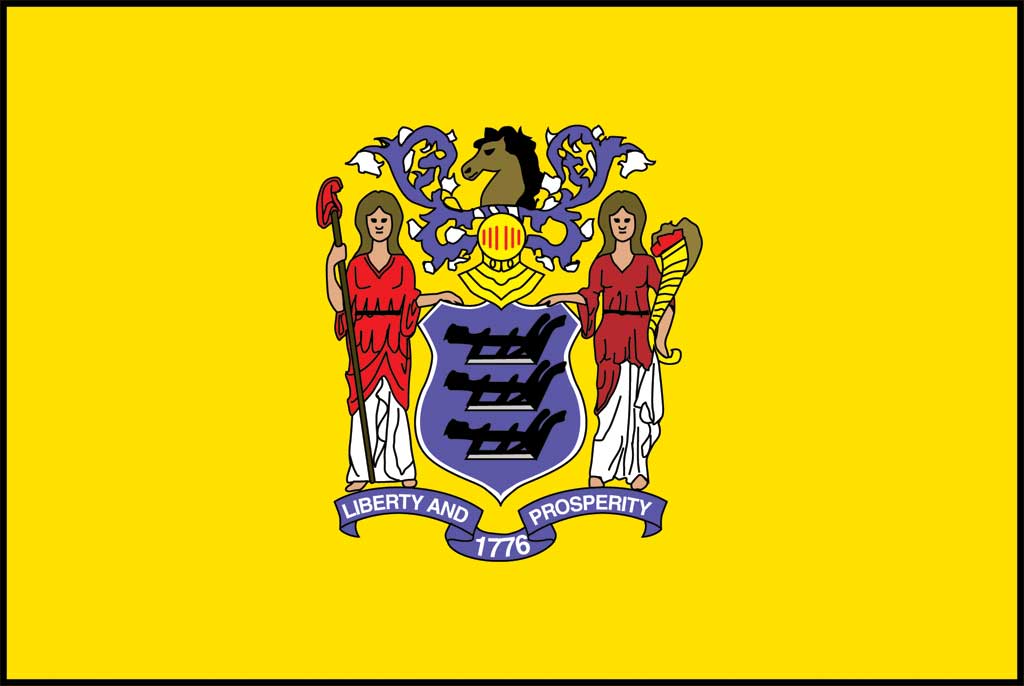A new state law will require the accomplishments of lesbian, gay, bisexual, transgender and queer (LGBTQ) individuals to be included in New Jersey’s public school curriculum.
The mandate, according to one person, could help to reduce incidents of bullying and create a safer school environment for students.
That was the assessment offered by Christian Fuscarino, executive director of Garden State Equality (GSE). Fuscarino said that beginning in 2021, New Jersey middle school and high school educators will be required to integrate contributions that have been made by LGBTQ people and individuals with disabilities into school lessons.
According to its website, GSE is “the largest LGBTQ advocacy organization in New Jersey and one of the most successful statewide civil rights organization for the LGBTQ community in the nation.”
“Each school district will retain its right to develop its own curriculum,” Fuscarino said in an interview at GSE headquarters in Asbury Park on Feb. 26. “GSE has reached out to the New Jersey Department of Education and asked for guidance to be issued so (the curriculum) does not vary drastically from district to district.”
The law, which was signed by Gov. Phil Murphy in January, requires boards of education to “include instruction, and adopt instructional materials, that accurately portray political, economic, and social contributions of persons with disabilities and lesbian, gay, bisexual and transgender people,” according to the legislation.
Fuscarino said GSE has developed an LGBTQ inclusive curriculum for one subject in the Black Horse Pike Regional School District in Camden County. He said the curriculum has been well received by students.
“We know this (new) law encompasses many other areas of a curriculum, so we will be developing that (curriculum) in the years to come. There are resources schools can use” to customize the curriculum,” Fuscarino said.
According to the Gay, Lesbian and Straight Education Network (GLSEN), which is the nation’s largest homosexual advocacy group, Fuscarino said instances of bullying are reduced in schools that have integrated an LGBTQ inclusive curriculum and programs.
“Not only are LGBTQ youths able to see themselves in the lessons, but for non-LGBTQ students, they see representations from a community they may not be familiar with. When you are more familiar with a group of people, you are less likely to discriminate against them,” Fuscarino said.
According to StopBullying.gov, “Bullying puts youth at increased risk for depression, suicidal ideation, misuse of drugs and alcohol, risky sexual behavior, and can affect academics as well. For LGBTQ youth, that risk is higher.”
Asked how the law could be integrated into a sixth grade English class, for example, Fuscarino said the accomplishments and works of LGBTQ authors would be integrated into lesson plans.
“If the English class is already teaching about authors who are LGBTQ identified, we would now need to make sure that within the curriculum, the sexual orientation of the individuals is mentioned. We could also see curriculum that is developed that includes new LGBTQ authors who have not been previously taught in schools.”
Fuscarino said Alan Turing, who was a mathematician, was a gay individual who could be mentioned in a math lesson. Fuscarino said Turing’s accomplishments in computer science could be studied and discussed, adding, “Thanks to (Turing’s) discoveries and inventions, it would be appropriate to mention him.”
Fuscarino said the law “would open up students to new individuals.” He said the curriculum would change the dynamic of education for adolescents as a school environment becomes safer.
“I believe if you are more comfortable in school, you are going to perform better,” he said. “(This curriculum) will be a positive experience for all students.”
In 2011, Fuscarino said, California became the first state to pass the Fair, Accurate, Inclusive and Respectful (FAIR) Education Act which mandates that the accomplishments of LGBTQ individuals be taught in history lessons.
New Jersey is the first state to pass a curriculum bill that requires the integration of LGBTQ accomplishments in multiple areas of study, he said.
Fuscarino said school district administrators will choose where the accomplishments of LGBTQ individuals can be integrated in certain courses of study.
The bill took several years to move through the state Legislature, Fuscarino said. The change in government in 2018 — with Murphy, a Democrat, succeeding Republican Chris Christie — pushed the effort forward after the bill “sat stagnant for a few years.”
“We were confident with Gov. Murphy, who is an ally to our community, that the bill would finally be able to move through and get a signature to be signed into law,” he said.
Asked why the sexual orientation of an individual, and not the accomplishments of the individual alone, should be included in education, Fuscarino said, “Studies show that incorporating LGBTQ lessons into curriculum helps reduce bullying and improves the school experience for students. If anyone is against this, I can’t understand why.
“As an LGBTQ person, I know my school experience would have been more positive and fulfilling if I had seen representations of myself (in education). I am hopeful for the next generation of young LGBTQ people,” he said.
In an interview on Feb. 26, Kate Okeson, a Rumson-Fair Haven Regional High School educator and co-founder of Make It Better 4 Youth, an “adolescent normative-based” program where LGBTQ adolescents come together, said it is important for LGBTQ students to see themselves in history.
“There are a lot of challenges with this curriculum,” Okeson said. “It’s not about peppering a curriculum … We need to look at how history is written and even how gender is seen in other cultures. Anytime (LGBTQ youths) are able to see a reflection on themselves in history, we establish equity. We are talking about the wellness for all students.”

